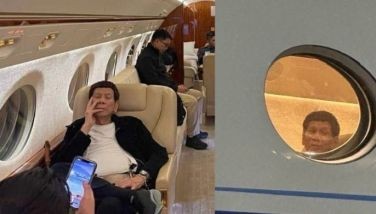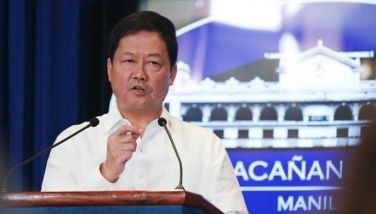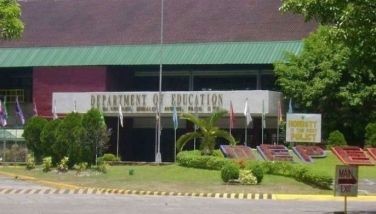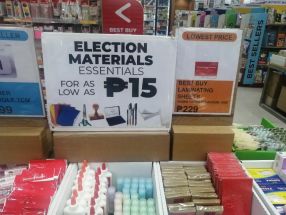NGO: Database needed to spot fake PWD IDs, ease doubt on disability community
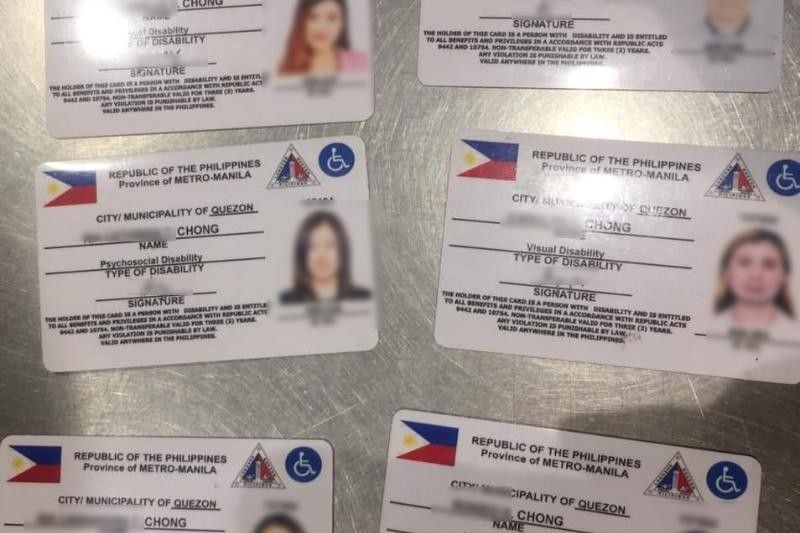
MANILA, Philippines — Amid the controversy over a well-off family found with six PWD cards that the Quezon City government has aid they were unqualified for, a non-government organization wants a PWD ID database to address what it says is the harassment brought about by prevailing and longstanding doubts in the integrity of PWD cards.
READ: Stricter screening sought as doubt remains over family with 6 PWD cards
In a concept paper sent to the Presidential Communications Operations Office, the Organization for Pinoys with Disabilities, Inc., also known as PWD Philippines, said that the sweeping effect of these doubts has led to members reporting disputes bank tellers and even government employees, many of whom the group says are still not aware "how to transact and react to persons with disabilities."
The paper, a copy of which was acquired by Philstar.com, proposes the creation of a national database of PWD IDs called Project Listahang PWIDI that is accessible to vendors and government agencies alike.
The group also said that it could take charge of maintaining and operating the database for a year and a half from its launch, at which point they will turn it over to the government.
"Because of the problems with the integrity of the PWD ID, many vendors have become wary of honoring their discounts, all because of a few fake IDs that have come into circulation," the proposition reads.
"Persons with disabilities are already bullied in the schoolyard, community, workplace, and sometimes in their own homes by their own immediate family members," the group said.
"The ID is meant to give PWDs some kind of reprieve from the heavy and punishing rigors of social indifference and ignorance, while also the government’s way of giving them some extra benefit to assist with their already burgeoning medical bills therapy costs," it also says.
The organization's proposal to the PCOO also quotes Kiko Acero, a lawyer, and data privacy expert formerly working under the National Privacy Commission, as saying that giving the public access to a PWD ID’s serial number is a direct violation Section of 13 of the Data Privacy Act.
The section in question, which touches on Sensitive Personal Information and Privileged Information, says that "processing of sensitive personal information and privileged information shall be prohibited" unless consent is given, the processing is provided by law, or it is necessary for medical treatment, among others.
"Thus the only information that can be given to the database user is if the name of the person claiming a discount or claiming to have a valid, unexpired PWD ID is in the database or not. Any other information, such as the nature of the disability or a photo of the ID holder is not going to be revealed at this time," PWD Philippines says in its document.
This comes amid a House inquiry and local government probe into the proliferation of fake PWD cards, which was sparked after the Chong family drew the ire of social media after a picture of their six PWD cards went viral. The House special committee on PWDs subsequently found that none of the family members were qualified to own their cards, while the Quezon City local government found that no supporting documents were even submitted to apply for them.
READ: QC government: No forms, records for family PWD cards in viral photo
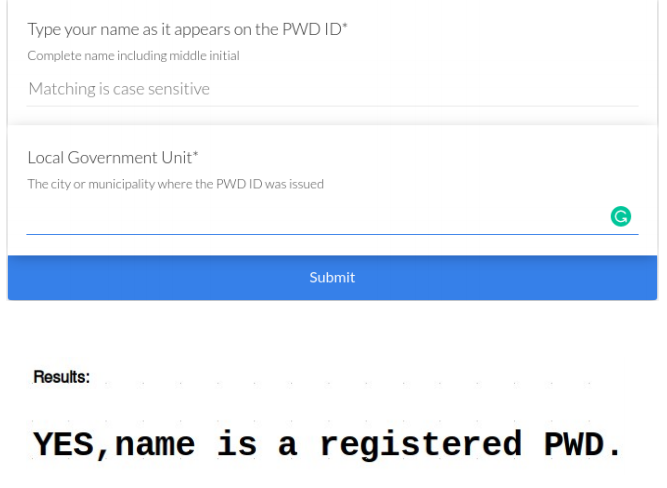
The most recent government census on the disability community in the country was conducted in 2010, and the Department of Health once had a now-defunct national database for PWDs that tracked cards that were issued by the Department of Social Welfare and Development and the National Council for Disability Affairs until 2017, when the implementing rules and regulations of the Magna Carta for Persons with Disabilities mandated that PWD cards be released by LGUs.
PWD Philippines also pointed out in its paper that the existence of the DOH's previous database was hardly made known to the public, and many establishments did not know about it. Additionally, it said, the online verifier may have inadvertently violated the privacy of ID holders at the time.
Disability advocates have said that complaints are harder to prove and consequently file without proper data on PWDs. In the absence of such a list, some LGUs have had to craft databases of their own.
Valenzuela City Mayor Rex Gatchalian, for instance, made use of a PWD database in bringing care packages to bedridden special needs children in the city.
At a congressional hearing in late August, the Department of Health disclosed that an internal survey effort of the department found that 12% of Filipinos in the country actually have severe types of disabilities.
In a survey of its members, the NGO said it found that more than half of respondents reported "experiencing embarrassment and humiliation, sometimes ridicule from vendor staff when they were trying to get their discount or requesting for some form of accommodation."
"We often educate our members that any humiliation or public ridicule is punishable with imprisonment as stated in Section 39 of Republic Act 9442. As of this writing, we have yet to hear any confirmed report of anyone who was sent to jail for publicly ridiculing a PWD," the paper reads.
Asking is not discrimination per se, advocate says
For Quezon City Federation for Persons with Disabilities president Alex Mendoza, establishments are entitled to clarify any questions they have before rendering services at a discount, and the discrimination happens in how they ask.
According to Mendoza, much of this has to do with a lack of understanding of the spectrum of disabilities and is not essentially discrimination per se, a sentiment echoed by PWD Philippines' concept paper.
"This lack of awareness often results in conflicts, potential lawsuits, and vexing controversies... Being denied their right to a discount is one of the biggest grievances of Pinoys with disabilities, alongside with discrimination and public ridicule. This has been the crux of the issues on the use of the PWD ID, as well as the reason for the need for an online verification system," the proposal said.
For Mendoza, it is only discriminatory if a PWD is rejected services right away.
"There should be understanding, showing of proof. But if you’re asked what your disability is, that’s not discrimination. It’s important that you’re asked about it, that’s communication. But establishments should be trained on how to approach the situation so they don’t offend... How can ordinary people see that when they don’t even know the different types of disabilities? So my point is, they really do need to ask sometimes, and it’s easy to explain that," he told Philstar.com in a phone call.
"A lot of people don’t like that they’re asked. But there are really a lot of times where PWDs are approached in a hostile manner just because they don’t look disabled. Sometimes they’re not diplomatic and they try to justify it...It’s important for business owners to ask questions because it’s critical to the interest of their business. It will benefit their business if they ask. On our part, I think we should answer and come to an understanding."
Mendoza acknowledged that the doubt is valid and comes from instances of Filipinos abusing the ease with which one can acquire a PWD card. He said that his "conservative estimate" was that around a fourth of PWD card holders have unqualified or fake IDs.
In earlier interviews, Mendoza said that it is typically affluent and well-connected families who engage in the practice.
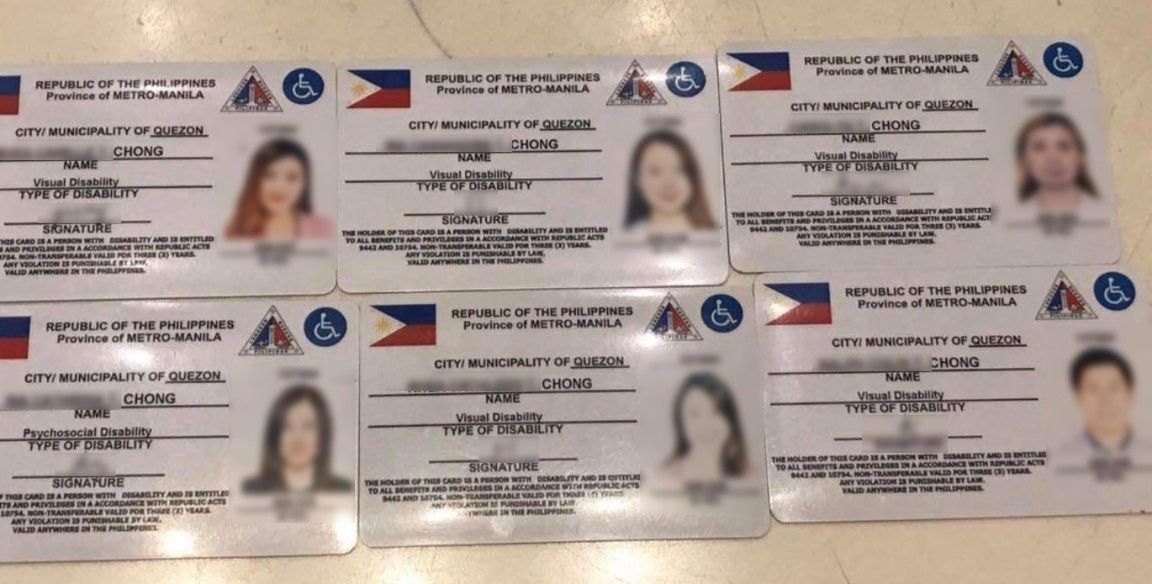
RELATED: LOOK: Design student crafts mobile app, PWD card system for thesis project
"The problem is people with ‘fake’ disabilities...It’s an evolving concept, but if you ask me, let’s go back to the beginning definition of disability as the result of an impairment. [You’re qualified] if you’re profoundly blind or legally blind, or have psychiatric disabilities like bipolar disorder, schizophrenia or manic disorder and clinical depression," he said.
'Hard to gauge damage on businesses'
Sought for comment in an earlier Philstar.com story, Steven Cua, president of industry group Philippine Amalgamated Supermarkets Association admitted that this lack of data extended to the effects of the fake PWD cards.
"We don’t go asking how many people use a card, and you have to get those numbers, how many people use cards and how much it costs...it's hard. I cannot just give a volume of how much it happens, but simple deduction tells you that obviously something which should have been part of your earnings is lessened," he said.
Cua added that the sensitivity of the issue is hard on establishments as well, as the line between genuine PWDs with non-apparent disabilities and possible fakes has been blurred by the widespread proliferation.
"Our issue with [the PWD benefits] is, how can you tell if someone is hard of hearing, for example? What would owners or cashiers know? You can hardly tell if someone is hard of hearing [for example]...With senior citizens, you probably could, but with PWDs, the problem is you can’t question. They could probably make a scene in the retail establishment," he said.
This sentiment was echoed by Rep. Ronnie Ong (Ang Probinsyano Party-list), who said in an interview that anecdotal evidence of falsified PWD cards is plentiful on the part of establishments who feel that they were scammed.
"We’ve been hearing horrible stories of establishments that are being abused, especially high-end ones that are really expensive...one establishment shared with us that in one group of 20, 20 out of 20 had PWD cards. That’s impossible. There’s another issue that legitimate PWDs are disenfranchised, because even if they’re legitimate, they’re questioned about it when they take out their cards," Ong said.
"I will put it this way: with regard to numbers specifically, we still don’t have them and we’re still trying to connect them. But we did an [informal] survey where we’d ask restaurants whenever we’d go out, and before COVID, the going rate was that for every 10 customers, 6 to 7 would have PWD cards...If you were to count, aside from the 20% discount, if you use a credit card, that’s another 3% shouldered by the establishment," he also said.
Lawmaker: Fix system without discriminating the disabled
As early as October, Ong and Rep. Eric Yap (ACT-CIS Party-list) have been calling for stricter processes behind the issuance of PWD cards, with the latter going so far as encouraging restaurant owners and employees to take pictures of suspected fakes.
Many PWD groups found this statement unfair, saying it baselessly puts the onus on legitimate persons-with-disability to prove their being disabled despite already being legally recognized as such by virtue of the very card being disputed. PWD Philippines in particular said it would only contribute to the doubt towards the integrity of PWD benefits.
Asked about the sentiment within some groups that genuine PWDs should not be made to adjust to stricter processes just because of fakes who were able to abuse the system, Ong said: "I agree with that because the law was really made to help PWDs and not inconvenience them."
"It’s the LGUs together with the DOH that should adjust. They should craft a system that does not give PWDs a difficult time when getting their cards but also not be easy to fool. [But] this is happening all over, and we really have to solve it without discriminating the legitimate PWDs," he added.
READ: Stricter screening sought as doubt remains over family with 6 PWD cards
Although PWD Philippines has long been calling for a database—having sent the proposal to the PCOO on August 13—lawmakers in the lower chamber also pitched the same idea at the congressional hearing on August 27.
"I don’t agree with [the 25% estimate], I think it’s higher. My rough estimate probably is 70%. We’ve reached the situation where people are really just giving PWD cards away. It’s like, ‘do you want a PWD card? I can get you one.’ They’ve made it into a discount card, which is really bad," Ong said.
PWD Philippines: Doubting ID became the norm
Sought for comment by Philstar.com, Arpee Lazaro, PWD Philippine executive director and co-writer of the proposal paper, said that a functioning database has been a long time coming and was proposed in response to what has become a norm of questioning PWDs cards.
"I gave this proposal to the PCOO because I was hoping that they would not use it for politicking, being in the executive branch where they stand to gain nothing. Plus the programmers I contacted to do the database would do it for reduced rates...[we want to] help the community protect its members from further harassment and bullying by having doubts on the ID become the norm rather than the exception, that we need to have our privacy violated before our rights are respected," Lazaro said.
"Our rights and privileges as PWDs must be upheld by strengthening the integrity of the PWD ID."
- Latest
- Trending

























